CHU T’ien-hsin, “The Old Capital”
Yangtze River vs. Tamsui River
The Yangtze River that the writer mentions here is one of the most typical rivers in mainland China. However, Tamsui River is located in the northern Taipei and it is different from the Yangtze River based on the picture shown above. Since the author hadn’t seen the real Yangtze River before, it was all in her imagination. In other words, it was the utopia when she was young. Similarly, the San Francisco view was also what the author had imagined because she didn’t have the chance to be there. She didn’t like the houses in the real life at that time, therefore, Zhu had her beautiful imagination to help her escape from the reality. But these were about her memories in her young time. Time has past rapidly already and she is also not a young girl anymore. Thus, all the imagination she once had had gone with the time too. Now she is missing the utopia and missing the beautiful time in the past.
“晴川历历汉阳树,芳草萋萋鹦鹉洲”
This quote is from an ancient Chinese poetry written by Hao Cui from Tang dynasty. In Chinese it’s “晴川历历汉阳树,芳草萋萋鹦鹉洲”. The poetry was written when Cui went to a historical site named “ Yellow Crane Tower”. The scenery reminded the author of the departed and the old legend. Therefore, he wrote this poetry in order to cherish the memory the past and express his nostalghia. Since Zhu cited the poetry here, we could infer that the scenery that she is seeing now also reminds her of the time when she and her friends were still young. Neither the place nor the people are all changed now. It could be the most depressed thing when she came back to Taiwan after several decades.
“The low, cloudy sky”
Zhu was recalling the time when she was with her fiend A. They were walking along the beach and singing songs together. The words low, cloudy, repressed, dark and gloomy made her memory become quite depressing just like the sad atmosphere when she was missing her young time. At that time, they might only know England from the books. Things were always pretty in their mind at young age. But after she grew up, she realized that utopia only existed in her dreams. The huge gap between the reality and the memory indicated her sadness.
“You were lost” & “You never went back”
Even though Zhu had already came back to Taiwan, everything in her memory had been changed. She was one of the local people so many years ago. She had her secret garden and she spent most of her free time in this secret place. Or we could say that it was not only the place where she enjoyed her time but also a symbol of her childhood. But now she was lost just like a tourist. How irony it was! As Zhu mentioned in the text, everything was not like it was supposed to be when she tried to take her husband to visit her secret garden. She got lost while showing him the best memory of her young age. She could be back anytime she wanted, but the only thing could not come back was the beauties in the memory. There’s a phrase in Chinese called “物是人非” which means the things are still here but the people are no more the same ones. This phrase is often used to describe how people got changed over time even though the things stay the same. However, both people and things were changed in Taipei where Zhu had her best memories when she was young. We could not imagine how shocked and sad she would be since she would never have the opportunity to go back.
TAO Yuanming, “The Peach Blossom Spring”
Background Information:
Yuanxi two years (AD 420) June, Liu Yu abolish emperor Jingong, the following year, Liu Yu used poisoned wine killed Emperor Jingong. These arouse the waves of Tao Yuanming’s heart. He can not change, also do not want to intervene in this situation. So he had to write poem to his express feelings, in order to pin his political ideals and good imagination of the society. “The Peach Blossom Spring” is produced in such a context.
Content:
In the year of Taiyuan of the Jin Dynasty, there lived a man in Wuling jun who earned his living by fishing. One day, he rowed his boat along a stream, unaware of how far he had gone. When all of a sudden, he found himself in the midst of a wood full of peach blossoms. At the end of the wood was the fountainhead of the stram. After he progressed about scores of paces, it suddenly widened into an open field. This is a beautiful land with fertile fields, beautiful ponds, bamboo groves. In the fields the villagers were busy with farm work. They were surprised at seeing the fisherman, and invited him to visit their home. They served him a lot of food and rice wine. They told him they their ancestors had come to this isolated haven, bringing their families and the village people, to escape from the turmoil during the Qin Dynasty and that from then onwards, they had been cut off from the outside world. The fisherman told them what happened outside they sighed. The Villagers offered him on the feast after another and entreated him not to let others know of their existence. Once out, the fisherman find his boat and want to go back. He leaved marks all the way. When he back to town, he reported his adventure to the prefest and the prefect immediately sent people go find the place. They found really carefully but did not find the sign and lost their way.
After years, a learned scholar of high repute try to find the place again but could not find it. He died soon afterwards, and after his death, no one else made any attempt to find it.
Central Idea:
At the beginning of the passage, TAO describe a world with everything beautify thing: “芳草鲜美,落英缤纷” The peach blossoms are everywhere. In that dream place, there are no war, no conspiracy, evern no crowd sound only peace and love. This is a comparison to the real world with fight everywhere. The reason why TAO did not write cherry blossom but peach trees instead is because the cherry blossom will die soon after blooming.(kinda represent short lives, clean and death), but peach is always the symbol of extend the time of life, this is a general tradition in China. The land the fisherman found is represented the heaven which no one after can find the cave anymore is because it never exist society but everyone yearn for it.
“Secret Love of the Peach Blossoms Land”
“Secret Love for the Peach Blossoms Land” is based on the two crews “Secret Love” and “Peach Blossom Spring” to rob the rehearsal theater the day before the performance. “Secret Love” is a story of waiting and pursuing; “Peach Blossom Spring” is a story of missing and pursuing.
Jiang Binliu and Yun Zhifan in “Secret Love” are searching and missing all their lives. They missed each other and missed the people around them at the same time. Jiang Binliu has been constantly searching for youthful love, looking for the girl in his memory. The director is also looking for his own memories of youth, when he was in Shanghai, which reflected the story he wrote is somehow connected to himself. He complains the actor did not have the feeling of Shanghai in 1948. But actually he is the only one who has been to Shanghai at that time, and because that is in his memory, no one can really repeat that precious memory in his heart. “Peach Blossom Spring” is based on the fisherman 老陶(桃) , 春花 (花), 袁老板 (源). The intricate triangular relationship between them, reflects the huge gap between reality and the peach blossom spring. Chunhua and BossYuan looked for opportunities to be together, Lao Tao went to find big fish, did not expect to find the peach flower source; Liu Ziji looked for the peach flower source, the white woman looked for Liu Ziji… Everyone has their own things to look for. Pursuing the happy Peach Blossoms crew, the secret love group that pursues the beautiful memory and the crazy woman who pursues true love… In the end, everyone did not find it, but still lost in the pursuit, looking for it in the loss.
In fact, “Peach Blossom Spring” may also be another ending of “Secret Love”. BossYuan and Chunhua may become to Jiang Binliu and Yun Zhifan. They seem to have the life they are looking for and the beautiful imagination. Only the outside of their lives is the”Peach Blossom Spring” they yearn for. “Secret love for Peach Blossoms” In my opinion, what it want to express in the end is still a state in life, a state of constant pursuit.

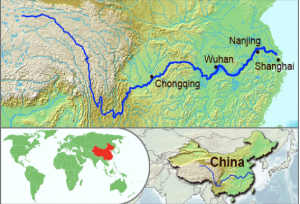
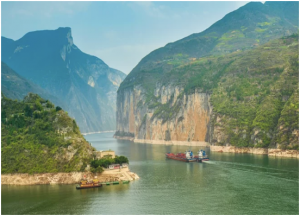
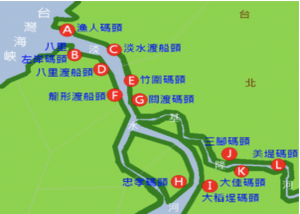
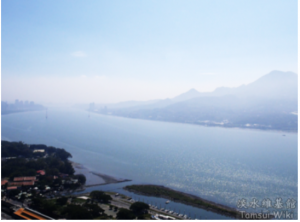
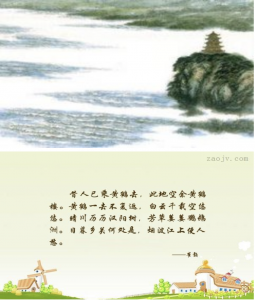
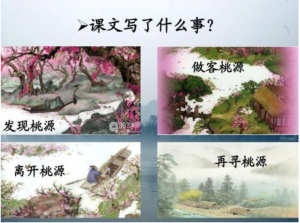
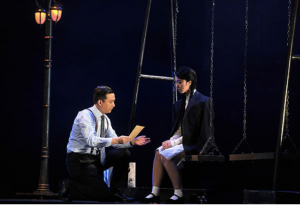
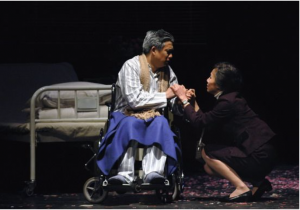
Recent Comments